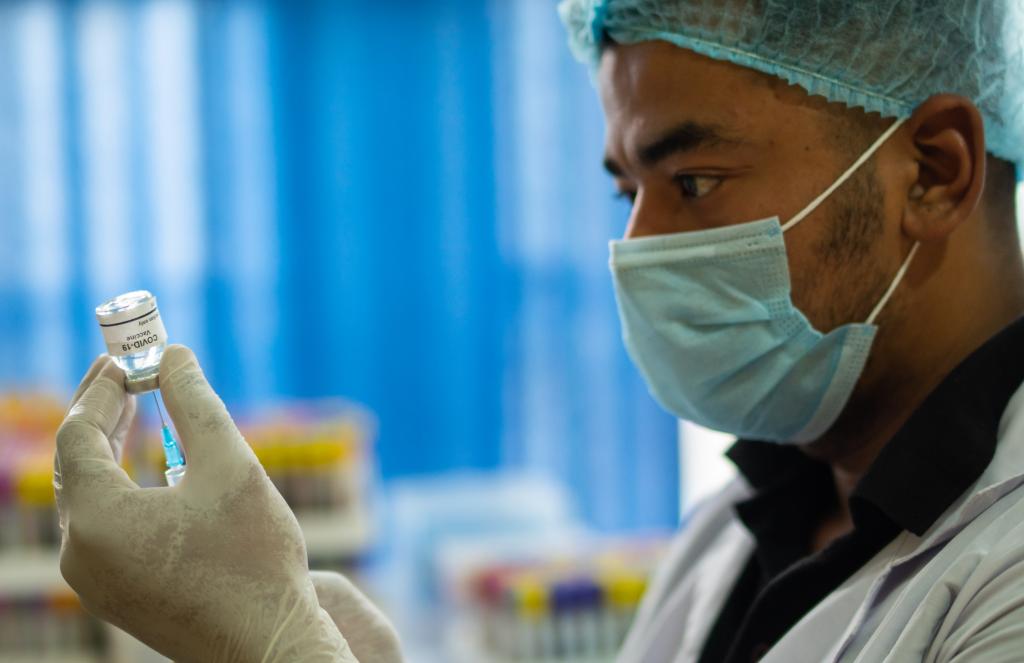Thessaloniki gets ready for its metro launch in November
The underground rapid transit lines have been under construction for almost two decades due to various project delays
 TheMayor.EU logo
TheMayor.EU logo 
Salzburg is ready to deploy doctors near nursing homes despite uncertainty surrounding a booster vaccine
Despite uncertainty on the need for a third vaccine shot, Salzburg is getting ready to roll out personnel and to order doses
The Austrian state of Salzburg is getting ready to give a third vaccine shot to people over 65 and vulnerable groups as well as the possible tightening of Covid-restrictions amid a nationwide infections spike that has led to fear of a new wave. State Health Minister Wolfgang Mückstein announced that the third vaccination campaign should start on 17 October.
At the same time, the Deputy Governor of Salzburg, Christian Stöckl expressed his support for a 1-G rule starting in autumn, effectively making vaccination compulsory for restaurants, cultural events, sporting events and gyms.
The third shot will only be done with the mRNA vaccines from Biontech, Pfizer or Moderna. The state government is getting ready with personnel and a fresh order of doses, designated specifically for nursing homes.
According to Deputy Governor Stöckl, however, it is still unclear whether the European Medicines Agency (EMA) or the national vaccination board will recommend a third vaccination at all, and the question of who will need a third shot is even more open.
Currently, a vaccination certificate is valid for only nine months and after that, all age groups are supposed to get a third shot to extend their immunity. Whether a dual dose will actually still help after nine months is up for debate, as there are not that many people that have been vaccinated for that long.
Still, the government is prepared to offer a booster shot to people over 65 and risk groups, with the focus primarily on those who originally got the vector vaccines from AstraZeneca and Johnson & Johnson.
The 1-G rule means that only vaccinated people will have the right to visit some areas of public life, in particular restaurants, cultural events, sporting events and gyms. These spaces are identified as carrying the most risk of infection, so in some ways, it makes sense for them to have the strictest rules for admission.
The cultural sector, in particular, was the hardest hit by pandemic restrictions, because it was the first to lock down and the last to open, to a reduced capacity. Continuing the cycle of opening and closing risks to decimate the entire industry as well as its supporting businesses.
Christian Stöckl has a positive opinion of the Health Minister’s proposed tightening on Covid-measures with the 1-G rule, as opposed to massive lockdowns. He explained that he did not understand why people who already had had their jabs also needed to be subject to massive restrictions just to protect those who are unwilling to vaccinate.
Thomas Randisek, head of the umbrella organization of Salzburg’s cultural spaces, Dachverband Kultur Salzburg, expressed his support of the proposed restrictions. He admitted that he understood that people felt about the 1-G rule as an infringement on their rights. However, he doubled down in his view, when talking to ORF, that those who did not want to be vaccinated had no business in a cultural or leisure facility, out of consideration for other people.

The underground rapid transit lines have been under construction for almost two decades due to various project delays

Now you can get your wine in Talence by paying directly in Bitcoin

That’s because the state has to spend money on updating the railway infrastructure rather than subsidizing the cost of the popular pass

Rethinking renewable energy sources for the urban landscape

The examples, compiled by Beyond Fossil Fuels, can inform and inspire communities and entrepreneurs that still feel trepidation at the prospect of energy transition

Now you can get your wine in Talence by paying directly in Bitcoin

The 10th European Conference on Sustainable Cities and Towns (ESCT) sets the stage for stronger cooperation between the EU, national and local level to fast track Europe's transition to climate neutrality.

At least, that’s the promise made by the mayor of Paris, Anne Hidalgo

The underground rapid transit lines have been under construction for almost two decades due to various project delays

At least, that’s the promise made by the mayor of Paris, Anne Hidalgo

Hostal de Pinós is located in the geographical centre of the autonomous region

Despite its church-y name, the district has long been known as the hangout spot for the artsy crowds

Urban dwellers across the EU are having a say in making their surroundings friendlier to people and the environment.

Forests in the EU can help green the European construction industry and bolster a continent-wide push for architectural improvements.

Apply by 10 November and do your part for the transformation of European public spaces

An interview with the Mayor of a Polish city that seeks to reinvent itself

An interview with the newly elected ICLEI President and Mayor of Malmö

A conversation with the Mayor of Lisbon about the spirit and dimensions of innovation present in the Portuguese capital














